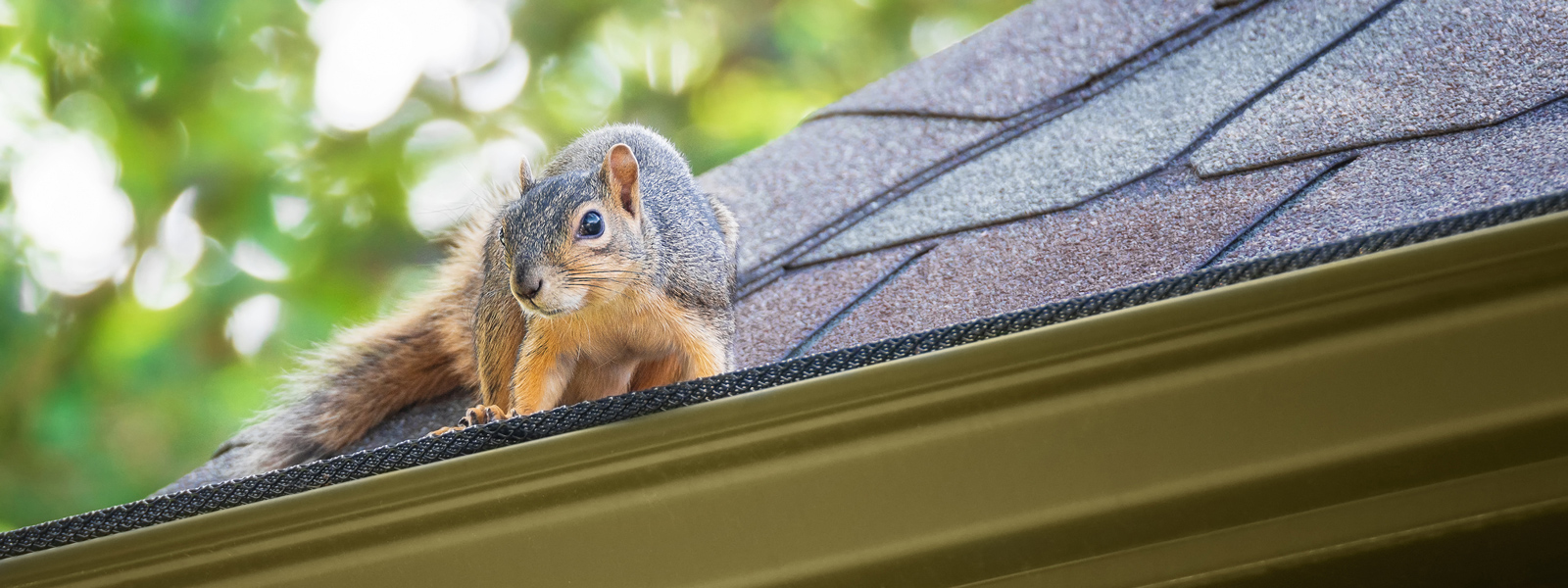Humane Rodent and Dead Animal Removal: Local Experts Near You.

Humane Rodent and Dead Animal Removal: Local Experts Near You.
Quickly and discreetly remove rodents and dead animals from your home. Find a trusted professional near you.
If you are having a problem with a wild animal, please select your city/town in Michigan from the map or list above. This Michigan animal control directory lists the phone numbers of professional wildlife removal experts throughout Michigan. These nuisance wildlife control operators deal with conflicts between people and wildlife such as squirrels living in an attic, or raccoons digging through the trash can. Call the licensed and insured professional listed here, and get the problem taken care of once and for all.
There are many Michigan pest control companies, but most of them treat for insect problems, and have little experience dealing with wild animals. Our specially trained technicians have the specific knowledge and equipment necessary for Michigan wildlife management. We are not extermination companies, we are professional Michigan trappers of wildlife. We are humane, and do a complete job - everything from animal damage repairs to biohazard waste cleanup.
Our Michigan animal control experts can handle many wildlife issues. Examples include Michigan bat control and removal. It takes an experienced pro to safely and legally remove a colony of bats. The same goes for bird control, such as roosting pigeons. We know all the species of Michigan snakes, and can safely remove them. We most commonly deal with animals in the home, such as rats or mice in the attic, or raccoons in the chimney. Select your area on the map above, and find a professional in your home town.
There are many Michigan pest control companies, but most of them treat for insect problems, and have little experience dealing with wild animals. Our specially trained technicians have the specific knowledge and equipment necessary for Michigan wildlife management. We are not extermination companies, we are professional Michigan trappers of wildlife. We are humane, and do a complete job - everything from animal damage repairs to biohazard waste cleanup.
Our Michigan animal control experts can handle many wildlife issues. Examples include Michigan bat control and removal. It takes an experienced pro to safely and legally remove a colony of bats. The same goes for bird control, such as roosting pigeons. We know all the species of Michigan snakes, and can safely remove them. We most commonly deal with animals in the home, such as rats or mice in the attic, or raccoons in the chimney. Select your area on the map above, and find a professional in your home town.
Michigan info: A more northern Midwest state, Michigan is home to raccoons and squirrels, bats, groundhogs, skunks, and more. Very few wolverines, however.
If you need assistance with a domestic animal, such as a dog or a cat, you need to call your local Michigan county animal services or SPCA for assistance. They can help you out with issues such as stray dogs, stray cats, dangerous animal complaints, pet adoption, bite reports, deceased pets, lost pets, and other issues. We have those numbers listed here for your convenience. If your city is not on our map, consult your local yellow pages or search for 'Animal Control' or 'SPCA' in your town.
If you need assistance with a domestic animal, such as a dog or a cat, you need to call your local Michigan county animal services or SPCA for assistance. They can help you out with issues such as stray dogs, stray cats, dangerous animal complaints, pet adoption, bite reports, deceased pets, lost pets, and other issues. We have those numbers listed here for your convenience. If your city is not on our map, consult your local yellow pages or search for 'Animal Control' or 'SPCA' in your town.
Lansing, MI
17°F to 82°F
17°F to 82°F
- Fly
- Frog
- Brook trout
- Painted turtle
- American robin
- White-tailed deer
Michigan is nestled in the Great Lakes, and as you might expect, the state receives a lot of snow and a lot of violent storms. Most of the state has a short, warm summer followed by a long, extremely cold winter. Only the southernmost aspect of the state escapes the long winter, but temperatures are still below freezing. Because of the colder temperatures and shorter season of warmth, the animals in this part of the country are ones that can hibernate or build up enough food storage to make it through a long winter. There are not many large mountains in this state, but there is a good mix of grassland and coniferous and deciduous forests. The thick pine trees allow wildlife to remain sheltered during the violent snows and rains that bombard this state.
The animals in Michigan are those most commonly found in the colder, upper part of the United States. White-tailed deer abound, but they are accompanied by elk and mule deer. These large grazers pave the way for large predators like cougars, wolves, coyotes and black bears. While most of these predators are of no real concern to the average homeowner, black bears have been known to raid garbage bins and bird feeders. Coyotes and wolves can also be dangerous, especially since they hunt in packs. There is enough game in Michigan to keep these predators in the wild for the most part, but farmers are acutely aware of their presence during months when food for the canines is scarce.
Michigan also is home to an animal called the fisher, or the fisher cat. This creature resembles a large weasel, but it is amazingly ferocious. It lives primarily in trees, and is one of the few animals comfortable hunting a porcupine.
Nuisance animals in Michigan are often the same nuisance animals in many other states. The dark pine forests of the state are wonderful for raccoons, opossums, skunks, and squirrels. People living near nature will eventually have to deal with an animal coming into their yard, and most homeowners in this part of the country are well-versed in proper preventative methods. Thankfully, one of the pest creatures Michigan residents don't have to worry a lot about are venomous snakes. There is only one species of rattlesnake in the region, and it is so rare that few life-long residents have ever seen one.
The animals in Michigan are those most commonly found in the colder, upper part of the United States. White-tailed deer abound, but they are accompanied by elk and mule deer. These large grazers pave the way for large predators like cougars, wolves, coyotes and black bears. While most of these predators are of no real concern to the average homeowner, black bears have been known to raid garbage bins and bird feeders. Coyotes and wolves can also be dangerous, especially since they hunt in packs. There is enough game in Michigan to keep these predators in the wild for the most part, but farmers are acutely aware of their presence during months when food for the canines is scarce.
Michigan also is home to an animal called the fisher, or the fisher cat. This creature resembles a large weasel, but it is amazingly ferocious. It lives primarily in trees, and is one of the few animals comfortable hunting a porcupine.
Nuisance animals in Michigan are often the same nuisance animals in many other states. The dark pine forests of the state are wonderful for raccoons, opossums, skunks, and squirrels. People living near nature will eventually have to deal with an animal coming into their yard, and most homeowners in this part of the country are well-versed in proper preventative methods. Thankfully, one of the pest creatures Michigan residents don't have to worry a lot about are venomous snakes. There is only one species of rattlesnake in the region, and it is so rare that few life-long residents have ever seen one.
Michigan Wildlife Invading Homes: A Growing Concern
Michigan's landscape and climate make it an ideal habitat for a wide variety of wildlife. Unfortunately, this can also lead to problems for homeowners as animals seek shelter and food in residential areas.
As the human population continues to expand, encounters with wildlife are becoming increasingly common across the United States. One of the most frustrating and sometimes dangerous issues for homeowners is when animals find their way inside.
One of the most common culprits is the raccoon. These intelligent and adaptable creatures are skilled at finding ways into homes through small openings in roofs, chimneys, or vents. Once inside, they can cause damage to insulation, wiring, and furniture.
The specific types of wildlife that may invade homes vary depending on the region, but some common culprits in Michigan include:
To prevent wildlife from entering your home, consider the following:
If you have a wildlife infestation, it's important to contact a professional wildlife removal service. They have the experience and equipment to safely and humanely remove animals from your home and prevent future infestations.
By taking these steps, you can help protect your home and property from wildlife damage while also ensuring the safety of both humans and animals
As the human population continues to expand, encounters with wildlife are becoming increasingly common across the United States. One of the most frustrating and sometimes dangerous issues for homeowners is when animals find their way inside.
One of the most common culprits is the raccoon. These intelligent and adaptable creatures are skilled at finding ways into homes through small openings in roofs, chimneys, or vents. Once inside, they can cause damage to insulation, wiring, and furniture.
The specific types of wildlife that may invade homes vary depending on the region, but some common culprits in Michigan include:
- Opossums: These nocturnal marsupials can squeeze through surprisingly small holes.
- Squirrels: Both ground squirrels and tree squirrels can cause damage to homes and gardens.
- Bats: Bats may enter through small gaps in the roof or walls, potentially carrying diseases.
- Rodents: Rats and mice can squeeze through tiny openings and contaminate food.
To prevent wildlife from entering your home, consider the following:
- Seal up entry points: Inspect your home for any gaps or cracks in the exterior and seal them with caulk or metal flashing.
- Install screens: Use screens on windows and vents to deter flying animals.
- Remove attractants: Keep garbage, pet food, and bird feeders away from your home to avoid attracting wildlife.
If you have a wildlife infestation, it's important to contact a professional wildlife removal service. They have the experience and equipment to safely and humanely remove animals from your home and prevent future infestations.
By taking these steps, you can help protect your home and property from wildlife damage while also ensuring the safety of both humans and animals
